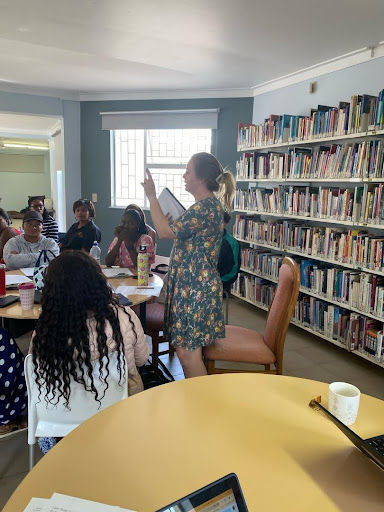Education at WIS is student-centred
- Windhoek International School
- Aug 25, 2023
- 2 min read
Dear WIS Community,
What do we mean when we say that education at WIS is student-centred? Traditionally, the term “student-centred learning” refers to the act of teachers providing students with “voice and choice” in the material they learn and how they learn it.
At WIS, we view student-centredness as something broader than that. It means meeting learners where they are at (this is oftentimes termed “differentiation”). We view education at WIS as less like filling up a bucket and more like lighting a fire.

When students take ownership of their challenges and mistakes, they learn the tools to handle frustration and they become resilient and determined. When students take ownership of their learning, there is no containing how deep their inquiry will go or how fast they will progress. Our new instructional coach, Derrek Berkompass, pictured here, has been helping our teachers with four questions that lead to this type of student-centredness.
Student-centredness is why the Primary teachers have been meeting this week with parents to learn more about their children, and along with building community, it is why we will be holding our WIS Back-to-School Night on August 30th.
The notion of Student-centred learning is central to our WIS Principles – especially the WIS Principle of Ownership:

The OWNERSHIP Principle
When we take ownership of our process, it becomes possible to try new things with a positive attitude and high expectations. Learning is a deeply personal, social, and emotional process. We are all different, and we all have the right to own our learning story. The time and pace of each person’s journey is unique. We take a step-by-step approach to achieving our goals, and we are not afraid to revise our methods as we come to learn more. We believe that learners rise to expectations and that motivation must come from within.
In Practice:
We use strengths to address weaknesses. We meet each learner where they are and help them build the capacity for growth and self-regulation. Our unit plans give voice and choice to the learner. We provide modifications and accommodations to learning plans as required. We take time to revise our work. We reflect on our own learning journey.
Questions:
Am I taking responsible ownership of my daily actions?
Do I pursue physical, mental, and emotional wellness?
Do I spend time in reflection and introspection?
Am I making it safe for others to discuss their feelings, worries, and frustrations?
Can I explain why this activity matters to me, and evaluate my commitment to it?
Am I taking the opportunity to take on real and meaningful responsibility?
Have a great weekend!
Sincerely,
Ethan Van Drunen
Educational Director








Comments